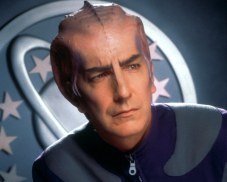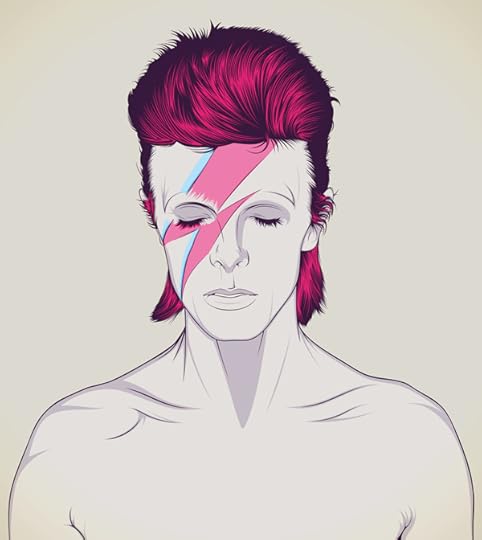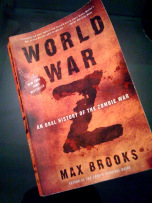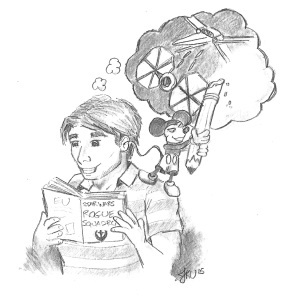J.K. Ullrich's Blog, page 22
January 19, 2016
Sentenced: Struggles with Short Stories

Stephen King must have a much more affectionate relationship with short stories than I do. The past two months I spent writing pieces for ASU’s cli-fi short story contest—submitting them just a few days shy of the deadline last Friday—didn’t feel like a passionate, mysterious encounter. More like a home invasion. Let’s review the charges:
Breaking and entering. The contest’s word limit shattered my clean, crystallized vision of how storytelling works and proved just how fragile those constructs are. For a novelist, five thousand words feels like a single, alarming burst of prose, a boot through a glass pane. My usual approach is more analogous to lock-picking: aligning tumblers and prying open a story’s secrets. Ever cerebral and obsessive, I admit I sketched “plot outlines” for the short pieces. But even so, their abrupt nature left me a little stunned and helpless.
Stealing my valuables. A lavish, descriptive vocabulary. Slow-smoldering character development. Seeding seemingly insignificant references that later explode into crucial details. I believe these are my greatest assets as a writer. And the short story format robs me of them. In fairness, such literary austerity proved a worthwhile exercise. I had to strip stories down to their essence, both in narrative and in language. Abbreviation forced innovation. Experimenting with new techniques gave me new perspectives on storytelling.
Assault and battery. As if breaking into my mind palace and thieving my creative assets wasn’t bad enough, these bloody-minded short stories beat me up for good measure. They concentrate a few hundred pages worth of character psychology into mere paragraphs. The effect isn’t a kiss in the dark so much as a sucker punch with brass knuckles. After finishing my second story, I walked around in a mild daze. I’d submerged myself so deeply in the characters’ mental turmoil, I felt disconnected from the real world. Such emotional intensity should come with a health advisory.
That’s quite a rap sheet. I wrote a 71,000-word novel, but two short stories brought me weeks of agony. Still, I feel I attained a modicum of growth as a writer. I hadn’t written short stories since college (and I still associate them with inch-thick compendiums of desperate late-night fiction, hastily stapled by one of the work-study aides and featuring at least one classmate’s attempt to circumvent page limits with microscopic margins and an eight-point font). Writing them as an adult is a profoundly different experience. The stories were without question the most challenging writing I’d done in a long time. (Special thanks to my Laddie for reading, critiquing, and editing both pieces; without his effort, I probably wouldn’t have made the deadline or been satisfied with my entries.)
While I won’t be releasing a short story collection anytime soon, I have a new appreciation for how much work goes into short fiction. I might might dabble in the format again someday. The frustrations did ultimately yield some rewards, regardless of how my pieces fare in the contest. For now, however, I’m grateful to get back to my neglected novella. As of tonight, The Darksider Pt 1 contains about 35,000 words, and it’s a relief to know I can add as many more as I like!
Do you write short stories? Any advice for my next effort, or thoughts on how the experience compares to other narrative forms? Let’s chat in the comments.

January 14, 2016
Snape & Sensibility & Sci-Fi: Remembering Alan Rickman
My blog is becoming an obituary column. Just days after saying goodbye to David Bowie, today we face another beloved British performer’s sudden departure: Alan Rickman. Few actors can glide between genres–classics, science fiction, fantasy, and more–and bring such an unmistakable presence to every one. I’m still too shocked to attempt writing a proper tribute, so instead I want to share my top three favorite Rickman roles. In ascending order…
 #3. Colonel Brandon in Sense & Sensibility. After seeing Rickman so frequently cast as a villain (or at best a dour, begrudging good guy) seeing him play the gentle and honorable hero of a Jane Austen sale took me aback at first. But he played the part with such understated, endearing grace, it utterly charmed me.
#3. Colonel Brandon in Sense & Sensibility. After seeing Rickman so frequently cast as a villain (or at best a dour, begrudging good guy) seeing him play the gentle and honorable hero of a Jane Austen sale took me aback at first. But he played the part with such understated, endearing grace, it utterly charmed me.
 #2. Alexander Dane/Dr. Lazarus in Galaxy Quest. “By Grabthar’s hammer”, this might be the most underrated performance of Rickman’s career. Who else could spend the whole movie wearing a purple head fin and make it look dignified? I’ve seen it a hundred times, but Rickman hits every note of his suffering Shakespearian sci-fi character so brilliantly–the weary gravitas, the deadpan one-liners–leaves me laughing as hard as the first time I saw it.
#2. Alexander Dane/Dr. Lazarus in Galaxy Quest. “By Grabthar’s hammer”, this might be the most underrated performance of Rickman’s career. Who else could spend the whole movie wearing a purple head fin and make it look dignified? I’ve seen it a hundred times, but Rickman hits every note of his suffering Shakespearian sci-fi character so brilliantly–the weary gravitas, the deadpan one-liners–leaves me laughing as hard as the first time I saw it.
 #1. Severus Snape in the Harry Potter films. Rickman will always be Snape to my generation. He didn’t just portray Snape. He embodied Snape. Every twitching expression of disdain, condescending inflection of tone, and flick of the black robes brought the Hogwarts potion master to elegant, sneering life. Even my imagination couldn’t compete with that performance.
#1. Severus Snape in the Harry Potter films. Rickman will always be Snape to my generation. He didn’t just portray Snape. He embodied Snape. Every twitching expression of disdain, condescending inflection of tone, and flick of the black robes brought the Hogwarts potion master to elegant, sneering life. Even my imagination couldn’t compete with that performance.
Two of my favorite Rickman roles originated in literature, so–thanks, quirky novelist brain–I often associate him with books. His unexpected passing feels like a page torn from the stories I love. Rickman will always be our Snape, our half-blood prince. And there’s no question that he will be remembered as acting royalty.

January 11, 2016
Millions Weep A Fountain: A Sci-Fi Writer Remembers David Bowie
“Here am I sitting in a tin can/far above the world/planet Earth is blue/and there’s nothing I can do…”
Rich layers of synth and guitar oozed from my mother’s monolithic turntable speakers. They probably stood taller than I did the first time she played me one of her David Bowie LPs. His music provided a soundtrack to the science fiction images that—thanks to other early influences like the Star Wars trilogy—already shimmered in my young brain.

“Watching him dash away/Swinging an old bouquet/Dead roses/…Millions weep a fountain”
When I heard this morning that Bowie had passed away at age 69, losing his private cancer battle just days after releasing his final album, the loss felt a little more personal than the usual farewell to an aging celebrity. It felt like a piece of my imagination had died. Media tributes for Bowie have, rightfully, celebrated his contributions to music and performance. But Bowie’s unique creative force extended even beyond these disciplines: through his diverse work, he became an an ambassador for science fiction.
It began in 1969, the year mankind took its giant leap. Apollo 11 landed on the moon, igniting public interest in what lay beyond Earth. The space zeitgeist found an anthem in David Bowie’s a funky rock single “Space Oddity”. Riffing (literally) on Stanley Kubrik’s epic film 2001: A Space Odyssey, released the previous year, the song chronicles an astronaut’s journey into space. BBC played the song when the Apollo crew returned safely home and propelled it to number five on the UK music charts.
“This is Ground Control to Major Tom/You’ve really made the grade/and the papers want to know whose shirts you wear…”
Bowie carried the sci-fi aesthetic into subsequent projects. The 1972 album The Rise and Fall of Ziggy Stardust and the Spiders from Mars introduced his persona as the titular alien rocker and featured songs like “Starman”. A few years later, Bowie wanted to produce a theatrcal version of George Orwell’s classic dystopian novel 1984. When Orwell’s estate denied the rights, Bowie turned what he’d already written into the Diamond Dogs album, which evokes a post-apocalyptic world.
Sci-fi themes also permeated Bowie’s filmography, most notably The Man Who Fell To Earth. The film earned Bowie a Saturn Award for his performance as an extraterrestrial who arrives on Earth seeking water for his drought-stricken homeworld. In The Hunger he played a vampire’s consort in search of immortality. Fans born in the 80’s, like me, fondly recall him as Jareth the Goblin King in Jim Henson’s cult classic Labyrinth. All these role showcase the otherworldly androgyny that became Bowie’s signature style.
In 2013, Bowie was inducted into the Science Fiction and Fantasy Hall of Fame—now part of Seattle’s Electronic Music Project Museum—for his work in the genres, constantly exploring and challenging their memes. Bowie’s career itself possessed a metamorphic quality. An iconic shapeshifter, he crafted new personas and showed us musical evolutions that mirrored changing social and musical trends.
“Can you hear me, Major Tom? / Can you hear me, Major Tom?”
Major Tom can’t hear us anymore. But his legacy will echo through popular culture like a signal through space, transmitting for generations to come.

January 10, 2016
Recent Reads: World War Z
 The new year brought zombies down upon us. My Laddie, desperate to fill the void left by finishing Fallout 4, started playing Dying Light and scampers off to his computer after dinner, chanting “zombies, zombies, zombies!” My monsters are pagebound, re-animated only in my imagination: after letting it languish on my reading list for years, I finally read World War Z by Max Brooks.
The new year brought zombies down upon us. My Laddie, desperate to fill the void left by finishing Fallout 4, started playing Dying Light and scampers off to his computer after dinner, chanting “zombies, zombies, zombies!” My monsters are pagebound, re-animated only in my imagination: after letting it languish on my reading list for years, I finally read World War Z by Max Brooks.
Have you ever read a book where something doesn’t quite sit right with you? You can’t quite put a finger on it, but it nags at you. Fifty pages in, it hit me. I frowned, flipping back through chapters I’d already read.
“What is it?” Laddie asked, peeling his eyes from his Kindle to glance across the pillow at me.
“This book is a series of interviews with different characters,” I explained.
“So?”
“So I’m fifty pages in and there hasn’t been a single female character!”
The first female survivor appeared a few minutes later, around page sixty of my used paperback copy. Okay, it’s not totally devoid of women; maybe I judged too soon, I thought. Then the character, in the opening lines of her story, proceeds to complain about her kids and her weight. I fought the urge to toss the book aside in frustration. I waited sixty pages for female representation and I get a cliched sitcom soccer mom?
For the remainder of the novel, I felt hyperaware of the story’s gender imbalance. After finishing it, I couldn’t resist going back for statistics. World War Z consists of approximately forty “interviews” with characters who survived a zombie apocalypse. Out of those forty, only five are female. Yes, five. I counted. Barely ten percent. Someone must have taken a “No Girls Allowed” sign from a 1950’s treehouse and tacked it on the door of the zombie shelter. A more appropriate title for the book would be World War Y, for Y chromosome.
I didn’t sense any deliberate sexism on the author’s part. In general, the women mentioned in the periphery of the narrative are not portrayed in weak or negative ways. So perhaps Max Brooks wasn’t comfortable writing from a woman’s perspective. He should have more confidence: my favorite episode in the book was the tale of a female fighter pilot shot down in an infested wilderness who finds the determination to save herself. In an otherwise diverse novel where characters hail from many nations and walks of life, such glaring one-sidedness dismayed me. Brooks uses the epistolary format to explore numerous perspectives on the zombie war, but includes only a whisper of female voices.
Feminist criticism aside, I had a hard time getting into the story. The interview format brings a sense of historical realism, but at the expense of momentum. A timeline of the zombie war unfolds across the interviews without any of the building suspense one expects in a traditional narrative. Events are referenced in multiple interviews, but there’s almost no continuity between the characters. Brooks took a well-developed thought experiment—how human civilization would cope with a zombie plague—and tried to cram it into a semi-narrative form. I appreciate the concept, it just didn’t work for me.
Many of the anecdotes lacked drama and read like pieces of a mildly imaginative sociology paper. The better ones functioned as short stories, with a flicker of narrative arc. Compounded, the result is a fragmented vision with some engaging ideas, but not enough cohesive storytelling to pull it all together. I never felt that “my alarm goes off in six hours but I just have to know what happens next” imperative that distinguishes a really good story. It was more like reading from the hardbound Intellectual Devotional on my nightstand, habitually consuming the next installment without expectation of deep engagement.
In all fairness, zombies aren’t really my thing. My Laddie and I forced ourselves through the first half-dozen episodes of The Walking Dead after friends repeatedly insisted how good it was, but we just couldn’t get into it. It’s possible my ambivalence towards the zombie trend made me more critical of this book. Yet I began the novel wanting to like it. I thought the innovative structure might make the subject matter more believable and create a unique literary experience. Unfortunately, it only made the story pokey and hard to finish. And if the gender representation in this book is indicative of the surviving population the human race is in serious trouble.

January 1, 2016
New Year’s Write-olutions 2016
I have a confession: I hate New Year’s Eve. No, really. On a philosophical level, the reminder of time passing and dreams yet unrealized depresses me. On a pragmatic level, I can’t stand hordes of noisy inebriates and restaurants pushing prix fixe menus at four times their usual rates. The handful of times I’ve ventured out to celebrate, as society demands, the experience inevitably disappoints. I’d rather go to bed at a reasonable hour and maintain my longstanding tradition of a morning run on New Year’s Day (usually with the U2 song “New Year’s Day” first on my playlist. Yeah, I’m that dorky).
However, a new year provides excellent initiative for setting goals. I always outline a few to motivate myself at the start of a year and (ideally) give me something upon which to reflect with satisfaction at its end. My new year’s goal for 2015 was to publish Blue Karma–success! Now that I’m further along the authorial learning curve, I expect even more from myself. So here, posted for all the world to keep me honest, are JK’s new year’s “write-solutions”. I’ve got six for 2016:
Finish The Darksider. The manuscript was rolling along nicely until about October, when I got sidetracked completing @##$*! short stories for this ASU cli-fi contest (short stories are my literary nemesis, but more on that in another post). New year, new plan. I’ve calculated that if I can write a mere 250 words a day (one industry-standard paperback page) I can still reach my target draft length by the end of May. If I developed the discipline to exercise every day, maybe I can do the same for a daily writing quota.
Publish The Darksider. I anticipated releasing my second novel in summer 2016, and I’m determined to abide by that if possible. My first self-publishing experience with Blue Karma taught me a lot, so I’ll approach it a bit differently this time. For example, I plan to give out a few ARCs for early review. Book bloggers, if you’re interested, let me know now! I’ll add you to the list.
Blog weekly. This year you can expect to see new posts on a regular basis. I’m aiming for a minimum of one per week. As you can see, I revamped the site so I can work with a nice, clean interface (leave me a comment with feedback on the new design).
Tweet daily. In the last month, I’ve realized how valuable Twitter can be to an author’s platform. Blue Karma got some love in the Twitter-verse last month, thanks to award-related boosts, and it connected me with some cool people. I aspire to tweet daily in 2016. Follow me @jk_ullrich and, if I don’t follow through on this goal, tweet me and remind me!
Finish drafting my third novel by the end of 2016. This is ambitious, but I need to challenge myself, right? If I can finish The Darksider on time, it leaves seven months for a new project. At 250 words a day, that’s a novel-length manuscript by the time we break out the bubbly for 2017. I’m itching to try writing my second-favorite genre, historical fiction…stay tuned.
Get my writing organized. My Laddie and I are moving shortly, and the new place affords space for me to have my own office! *squeal* It’s an ideal opportunity to sort out the piles of paper notes and arrange the scattered files on my hard-drive. Clutter has always been the enemy of my creativity. A disorderly environment enables a disorderly mind. Perhaps my 250-word daily goal will flow more smoothly once things are neat again.
Anyone else have writing-related goals for the new year? Share in the comments. We’ll keep each other on track as 2016 gets underway. Happy new year, everyone!

December 30, 2015
Top 5 Wednesday – Top 5 Books of the Year
 What a fun way to wrap up the year, thinking back on all the books I’ve read! 2015 also introduced me to Goodreads and the fantastic Top 5 Wednesday crew. I’ve had a blast participating and can’t wait to see what weekly challenges 2016 brings. Thanks, all! Here are a few of favorite titles I read this year:
What a fun way to wrap up the year, thinking back on all the books I’ve read! 2015 also introduced me to Goodreads and the fantastic Top 5 Wednesday crew. I’ve had a blast participating and can’t wait to see what weekly challenges 2016 brings. Thanks, all! Here are a few of favorite titles I read this year:
Boy’s Life, by Robert McCammon. If Norman Rockwell wrote an episode of The X-Files, it might read like this story of how a haunting murder and the inexorable creep of modernity transform a Southern town in the 1960s. The deft weave of character, setting, and potentially supernatural elements reminded me of Stephen King’s Hearts in Atlantis. McCammon’s lyrical writing mesmerizes like sunlight playing on dark water: you aren’t sure what lies beneath the surface, but can’t resist the siren call to submerge.
In the Heart of the Sea, by Nathaniel Philbrick. Sorry, Melville: this non-fiction retelling of the events that inspired Moby Dick is leagues more engrossing than your tedious classic. Philbrick stitches together Nantucket’s bloody whaling history with one ship crew’s unthinkable ordeal, creating a seamless masterpiece of true adventure I couldn’t put down.
Dawn, by Octavia Butler. This first installment in the Xenogenesis trilogy is a uniquely subtle first-contact story: spare, elegant, and thought-provoking. It’s also refreshing to read quality sci-fi focused on a female protagonist. Read my full review here.
The Way We Live Now, by Anthony Trollope. After years languishing on my to-read list, a very long trip this summer gave me the chance to pursue this correspondingly long book. Once one adjusts to the serialized novel style (which suspends that most basic tenet of fiction writing, “show, don’t tell”) the characters and their intrigues quickly absorb the reader. Although set in England on the cusp of the 20th century, the saga of corruption, greed, and keeping up appearances resonates with contemporary themes.
The Martian, by Andy Weir. While technical explanations sometimes impede narrative progress, this tale of survival on Mars is a rare accomplishment. Science is the real star, even as we root for marooned astronaut Mark Watney and his irrepressible sense of humor to make it home. Read my full review here.
If you haven’t read these, I heartily recommend them for your 2016 reading list. Looking forward to another year of Top 5’s!

December 27, 2015
Schrödinger’s Star Wars: Multiverses in Popular Fiction
“Did you see the new Star Wars movie?” I texted my friend last weekend. He’s one of the few people in my circle who shares my lifelong affection for the franchise, so I was eager to discuss it with him.
“No,” he replied. “I don’t want to see what they did to it.” For him, a devoted fan of the Star Wars extended universe (EU), Disney’s decision to create a storyline independent of the established canon “erased” the stories he loved.
“It still exists,” I told him. “It’s just an alternate universe.”
“That’s for lame Star Trek fans,” he said bitterly.
“I didn’t mean a parallel universe in the space-time sense,” I explained. What I meant was something more abstract, a theory of fiction I’ve been exploring in my head for some time: that popular stories become property of fans’ imaginations and are subject to individual re-interpretation.

My friend thinks Disney wants to erase his beloved “Star Wars” Extended Universe.
The “many worlds” interpretation of quantum mechanics speculates that a universe exists for every option in an observable range of outcomes. For example, if you flip a coin, it would come up heads in one universe and tails in another (a concept illustrated to great effect in Season Five of Futurama). The same principle can apply to our minds, our own private universes. Each time a story inhabits the mind of a new fan, it establishes a new version of the narrative.
Many of these correspond to the one defined by the original author, as my friend’s does. But who can prevent one from changing the story? It’s all make-believe anyway. What makes another sci-fi writer’s spinoff more legitimate than my private adaptation—George Lucas’ blessing? Sorry, but he lost credibility with that wretched prequel trilogy (which, by the way, I’ve edited out of my mental Star Wars timeline). Intellectual property law doesn’t govern my grey matter.
If physical cosmology allows of the possibility of a “multiverse” in reality, surely such an arrangement is feasible in fiction. Consider how frequently superhero franchises are reimagined. Uncanny X-Men, Astonishing X-Men, and Ultimate X-Men all present different visions of the same characters and universe. They don’t negate one another, but co-exist. They are variations on a theme. If any number of writers can re-interpret source material, surely fans carry that same privilege. After all, fiction only functions with active participation from the consumer. A story only succeeds when someone engages with it, suspending disbelief and accepting what it offers. Our experiences with the story will differ based on our private lenses, and that’s part of the fun.
We crave connection with the stories we love. One of my college friends, who adored the Harry Potter series, was convinced that two of the characters were in an implicit homosexual relationship. I didn’t get that vibe from the text, but I assessed that my friend—who identified as gay—simply sought relatability in the story. Any geek will tell you that one of fiction’s most intoxicating traits is that an imaginary world will accept you when none of the real ones seem to do so. Did I think Sirius and Lupin were a closeted couple? No. Did I contradict my friend’s interpretation of the story? Of course not. We each created an alternative universe for the story that suited our respective needs, and enjoyed sharing our love of the books.
Harry Potter offers another great example of multiverses in fiction. After Harry Potter and the Half-Blood Prince published in 2005, it convinced many readers that Snape was a villain. Other fans insisted Snape was a tragic, misunderstood hero. Arguably, this created two potential Potterverses, one in which Snape was good and another where he was evil. Until we opened the final novel, Snape—in the minds of readers, if not of author Rowling—simultaneously existed in two states, a sort of Schrödinger’s Potions Professor scenario. (I was on Team Snape; however, exploring the various potential outcomes provided over a year of delicious speculation.)
Not all fictional multiverses are based on fan interpretation: some actually have more than one version. With every new season, HBO’s Game of Thrones deviates more and more from the narrative established in George R.R. Martin’s A Song of Ice and Fire novels. Which is “authentic”? Depends on whom you ask. Purists often abide by originator content; however, the HBO show has many devoted fans who have never read the books. For them, the televised interpretation is the only “real” version of the story. Still others, like myself, compartmentalize and enjoy each format on its own merits.
Maybe I’m more accustomed than most to going rogue on my favorite stories, because almost every franchise I ever loved betrayed me. When a story takes a turn I find unacceptable (for example, killing Wash in the Serenity movie) I default to my private version, in which the undesirable event never occurred (in my head, the original Firefly crew still traipses merrily through the ‘Verse and toy dinosaurs still roam the control panel). Such fluidity is one of the most thrilling aspects of fiction: it’s fluid. Like water, it takes the shape of whatever vessel—in this case, individual minds—contain it. Stories are marvelous parasites. They duplicate themselves in human hosts, evolving and adapting to each individual environment.
So unless Disney can perform Jedi mind tricks to alter the contents of our brains, the EU will continue to thrive. Rogue Squadron lives on in my friend’s cherished nerd memories. So do those shamefully angsty Young Jedi Knights novels I liked when I was 12, and the countless adventures my sister and I invented for our action figures. We don’t have to“unlearn what we have learned”, as Yoda would say. We only need to open ourselves to new possibilities. And this is all that fiction—especially science fiction—asks of us.

Schrodinger’s Star Wars: Multiverses in Popular Fiction
“Did you see the new Star Wars movie?” I texted my friend last weekend. He’s one of the few people in my circle who shares my lifelong affection for the franchise, so I was eager to discuss it with him.
“No,” he replied. “I don’t want to see what they did to it.” For him, a devoted fan of the Star Wars extended universe (EU), Disney’s decision to create a storyline independent of the established canon “erased” the stories he loved.
“It still exists,” I told him. “It’s just an alternate universe.”
“That’s for lame Star Trek fans,” he said bitterly.
“I didn’t mean a parallel universe in the space-time sense,” I explained. What I meant was something more abstract, a theory of fiction I’ve been exploring in my head for some time: that popular stories become property of fans’ imaginations and are subject to individual re-interpretation.

My friend thinks Disney wants to erase his beloved “Star Wars” Extended Universe.
The “many worlds” interpretation of quantum mechanics speculates that a universe exists for every option in an observable range of outcomes. For example, if you flip a coin, it would come up heads in one universe and tails in another (a concept illustrated to great effect in Season Five of Futurama). The same principle can apply to our minds, our own private universes. Each time a story inhabits the mind of a new fan, it establishes a new version of the narrative.
Many of these correspond to the one defined by the original author, as my friend’s does. But who can prevent one from changing the story? It’s all make-believe anyway. What makes another sci-fi writer’s spinoff more legitimate than my private adaptation—George Lucas’ blessing? Sorry, but he lost credibility with that wretched prequel trilogy (which, by the way, I’ve edited out of my mental Star Wars timeline). Intellectual property law doesn’t govern my grey matter.
If physical cosmology allows of the possibility of a “multiverse” in reality, surely such an arrangement is feasible in fiction. Consider how frequently superhero franchises are reimagined. Uncanny X-Men, Astonishing X-Men, and Ultimate X-Men all present different visions of the same characters and universe. They don’t negate one another, but co-exist. They are variations on a theme. If any number of writers can re-interpret source material, surely fans carry that same privilege. After all, fiction only functions with active participation from the consumer. A story only succeeds when someone engages with it, suspending disbelief and accepting what it offers. Our experiences with the story will differ based on our private lenses, and that’s part of the fun.
We crave connection with the stories we love. One of my college friends, who adored the Harry Potter series, was convinced that two of the characters were in an implicit homosexual relationship. I didn’t get that vibe from the text, but I assessed that my friend—who identified as gay—simply sought relatability in the story. Any geek will tell you that one of fiction’s most intoxicating traits is that an imaginary world will accept you when none of the real ones seem to do so. Did I think Sirius and Lupin were a closeted couple? No. Did I contradict my friend’s interpretation of the story? Of course not. We each created an alternative universe for the story that suited our respective needs, and enjoyed sharing our love of the books.
Harry Potter offers another great example of multiverses in fiction. After Harry Potter and the Half-Blood Prince published in 2005, it convinced many readers that Snape was a villain. Other fans insisted Snape was a tragic, misunderstood hero. Arguably, this created two potential Potterverses, one in which Snape was good and another where he was evil. Until we opened the final novel, Snape—in the minds of readers, if not of author Rowling—simultaneously existed in two states, a sort of Schrodinger’s Potions Professor scenario. (I was on Team Snape; however, exploring the various potential outcomes provided over a year of delicious speculation.)
Not all fictional multiverses are based on fan interpretation: some actually have more than one version. With every new season, HBO’s Game of Thrones deviates more and more from the narrative established in George R.R. Martin’s A Song of Ice and Fire novels. Which is “authentic”? Depends on whom you ask. Purists often abide by originator content; however, the HBO show has many devoted fans who have never read the books. For them, the televised interpretation is the only “real” version of the story. Still others, like myself, compartmentalize and enjoy each format on its own merits.
Maybe I’m more accustomed than most to going rogue on my favorite stories, because almost every franchise I ever loved betrayed me. When a story takes a turn I find unacceptable (for example, killing Wash in the Serenity movie) I default to my private version, in which the undesirable event never occurred (in my head, the original Firefly crew still traipses merrily through the ‘Verse and toy dinosaurs still roam the control panel). Such fluidity is one of the most thrilling aspects of fiction: it’s fluid. Like water, it takes the shape of whatever vessel—in this case, individual minds—contain it. Stories are marvelous parasites. They duplicate themselves in human hosts, evolving and adapting to each individual environment.
So unless Disney can perform Jedi mind tricks to alter the contents of our brains, the EU will continue to thrive. Rogue Squadron lives on in my friend’s cherished nerd memories. So do those shamefully angsty Young Jedi Knights novels I liked when I was 12, and the countless adventures my sister and I invented for our action figures. We don’t have to“unlearn what we have learned”, as Yoda would say. We only need to open ourselves to new possibilities. And this is all that fiction—especially science fiction—asks of us.

December 20, 2015
Have a Blue (Karma) Christmas: Book Sale with Holiday Bonus
In Iceland, Christmas brings more than snow and mistletoe. It brings jólabókaflóð (Icelandic for “Christmas book flood”). Most of the country’s new books publish in December, sparking a frenzy of buying and discussing the eagerly anticipated titles. On Christmas Eve, people exchange book gifts and read the night away. I visited lovely Iceland in November 2011 and marveled at the fleeting winter daylight; it makes hibernating with a book the perfect holiday tradition.

‘Twas the night before Christmas, and all through the pole, Amaya scaled icebergs and water she stole. Reindeer swooped by, towing Santa’s bright sleigh: where will they land when the ice melts away?
Celebrate jólabókaflóð with me this year. To get you in the spirit, I’m offering a Kindle Countdown deal on Blue Karma! From Wednesday December 23 through Saturday December 26, you can score my award-winning debut novel for just USD 0.99. The usual list price is $2.99, and this is the first time I’ve put the book on sale since the launch week giveaway.
And because it’s a season of giving (and sometimes joyful excess) I’m including an extra little present. The Kindle edition of Blue Karma now includes a bonus preview chapter of my upcoming novel, The Darksider. Only two people besides myself have read the manuscript thus far. Allowing a glimpse before the story is complete scares me a little, but with Star Wars out, we need a new source of sci-fi teasers, right?
If you want to stock up that new eReader, need a last-minute gift for dystopian fiction fans on your list, or simply seek a fast-paced story to gobble up over a long weekend, Blue Karma has got you covered. This deal will disappear faster than Arctic sea ice, so don’t miss it!

Have a Blue (Karma) Christmas: Book Sale with holiday extras
In Iceland, Christmas brings more than snow and mistletoe. It brings jólabókaflóð (Icelandic for “Christmas book flood”). Most of the country’s new books publish in December, sparking a frenzy of buying and discussing the eagerly anticipated titles. On Christmas Eve, people exchange book gifts and read the night away. I visited lovely Iceland in November 2011 and marveled at the fleeting winter daylight; it makes hibernating with a book the perfect holiday tradition.

‘Twas the night before Christmas, and all through the pole, Amaya scaled icebergs and water she stole. Reindeer swooped by, towing Santa’s bright sleigh: where will they land when the ice melts away?
Celebrate jólabókaflóð with me this year. To get you in the spirit, I’m offering a Kindle Countdown deal on Blue Karma! From Wednesday December 23 through Saturday December 26, you can score my award-winning debut novel for just USD 0.99. The usual list price is $2.99, and this is the first time I’ve put the book on sale since the launch week giveaway.
And because it’s a season of giving (and sometimes joyful excess) I’m including an extra little present. The Kindle edition of Blue Karma now includes a bonus preview chapter of my upcoming novel, The Darksider. Only two people besides myself have read the manuscript thus far. Allowing a glimpse before the story is complete scares me a little, but with Star Wars out, we need a new source of sci-fi teasers, right?
If you want to stock up that new eReader, need a last-minute gift for dystopian fiction fans on your list, or simply seek a fast-paced story to gobble up over a long weekend, Blue Karma has got you covered. This deal will disappear faster than Arctic sea ice, so don’t miss it!




